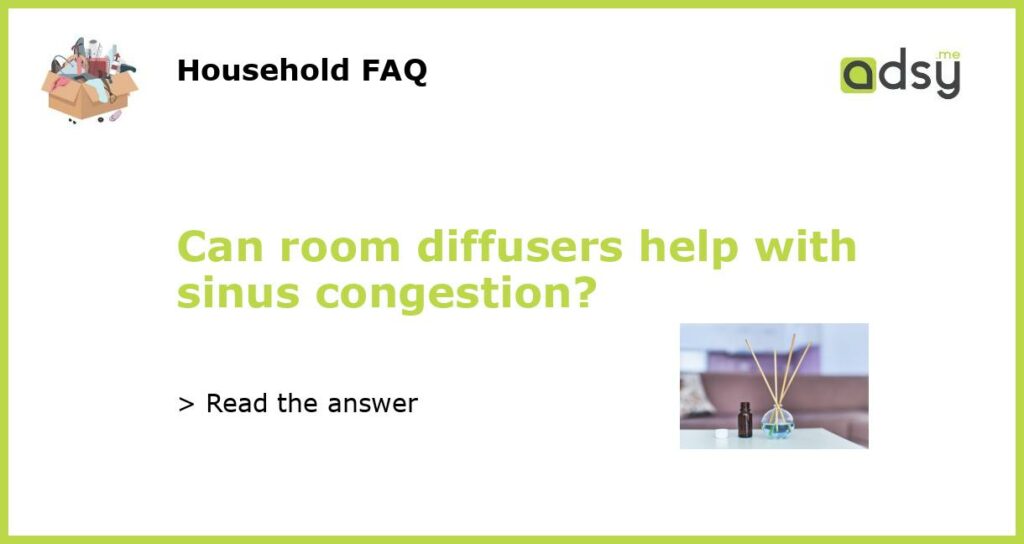What is sinus congestion?
Sinus congestion, often referred to as nasal congestion, is a common condition that occurs when the tissues in your nose and sinuses become swollen. This can make it difficult to breathe through your nose and can cause discomfort and pain. Sinus congestion is typically caused by allergies, colds, or sinus infections.
How do room diffusers work?
Room diffusers are devices that release essential oils into the air, creating a pleasant aroma. They work by using heat or ultrasonic vibrations to break down the essential oils into small particles that can be easily dispersed into the air. These particles are then inhaled, which allows the essential oils to enter the body and provide their therapeutic benefits.
Can room diffusers help with sinus congestion?
Yes, room diffusers can be beneficial for relieving sinus congestion. Certain essential oils, such as eucalyptus, peppermint, and tea tree, have properties that can help clear the sinuses and promote easier breathing. When these oils are diffused into the air, they can help reduce inflammation in the nasal passages and provide relief from congestion and stuffiness.
Additionally, the aromatherapy benefits of room diffusers can also contribute to relieving sinus congestion. The pleasant scents of essential oils can help improve mood and promote relaxation, which can aid in reducing stress and promoting a better night’s sleep. Both stress and lack of sleep can worsen sinus congestion, so using a room diffuser with calming essential oils may provide additional relief.
Tips for using room diffusers for sinus congestion
Here are some tips for using room diffusers to help with sinus congestion:
- Choose the right essential oils: Look for essential oils that are known for their anti-inflammatory and decongestant properties, such as eucalyptus, peppermint, tea tree, or lavender. These oils can help reduce inflammation in the nasal passages and make breathing easier.
- Use the recommended amount: Follow the instructions on your diffuser to determine the appropriate amount of essential oil to use. Using too much oil can be overwhelming and may cause irritation to the sinuses.
- Place the diffuser in the right location: Position the diffuser in a central location in the room so that the essential oils can disperse evenly throughout the space. Avoid placing it too close to your face to prevent irritation.
- Run the diffuser for the recommended duration: Most diffusers have a timer or settings that allow you to control the duration of diffusion. Follow the recommended duration to ensure optimal results.
- Keep the room well-ventilated: While using a room diffuser can be beneficial for sinus congestion, it’s important to keep the room well-ventilated. Opening windows or using a fan can help circulate fresh air and prevent the buildup of moisture, which can exacerbate congestion.
When to seek medical advice
While room diffusers can provide relief for sinus congestion, it’s important to note that they should not replace medical advice or treatment. If your sinus congestion persists or worsens despite using a room diffuser, or if you have other symptoms such as fever or persistent pain, it’s recommended to seek medical advice.
A healthcare professional can assess your symptoms and provide appropriate treatment options, which may include medications or other interventions to address the underlying cause of your sinus congestion. They can also provide guidance on using room diffusers safely and effectively for sinus congestion relief.






